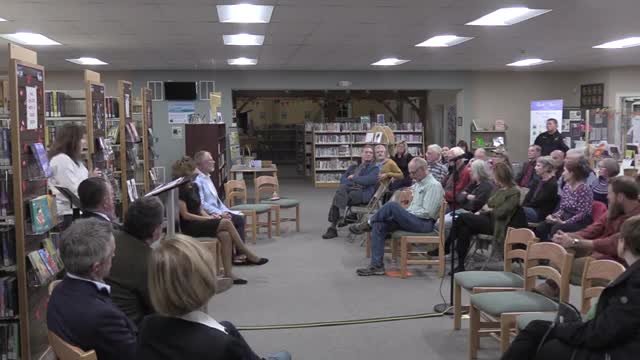Debate erupts over controversial school voucher program
October 31, 2024 | Brentwood Town, Rockingham County, New Hampshire
This article was created by AI summarizing key points discussed. AI makes mistakes, so for full details and context, please refer to the video of the full meeting. Please report any errors so we can fix them. Report an error »

In a recent government meeting, discussions centered around the implications of school voucher programs and educational freedom accounts, sparking a heated debate among officials. Melissa, a proponent of the voucher system, explained that the state allocates approximately $4,100 per student through these accounts, significantly less than the average public school expenditure of around $20,000 per student. She argued that this system allows for educational choice, particularly for families within 350% of the federal poverty level, and claimed that public schools benefit financially from the program despite students leaving.
Opponents, including Brenda, raised concerns about the financial implications of the voucher system, describing it as a form of double taxation. Brenda emphasized that public funds should support public education, arguing that the current system lacks oversight and accountability. She highlighted that many students utilizing vouchers were already enrolled in private schools, suggesting that the program primarily benefits families who can afford private education rather than those in need.
Brenda also criticized the allocation of taxpayer money to out-of-state private institutions, asserting that such practices undermine local educational funding. She expressed alarm over the potential erosion of public schools, which she believes are vital for community cohesion and property values. The discussion underscored a broader concern regarding the separation of church and state, as some voucher funds are directed to religious schools, which Brenda argued violates constitutional mandates.
The meeting revealed a deep divide among officials regarding the future of education funding, with proponents of vouchers advocating for parental choice and critics warning of the risks to public education and community integrity. As the debate continues, the implications of these educational policies remain a contentious issue within the community.
Opponents, including Brenda, raised concerns about the financial implications of the voucher system, describing it as a form of double taxation. Brenda emphasized that public funds should support public education, arguing that the current system lacks oversight and accountability. She highlighted that many students utilizing vouchers were already enrolled in private schools, suggesting that the program primarily benefits families who can afford private education rather than those in need.
Brenda also criticized the allocation of taxpayer money to out-of-state private institutions, asserting that such practices undermine local educational funding. She expressed alarm over the potential erosion of public schools, which she believes are vital for community cohesion and property values. The discussion underscored a broader concern regarding the separation of church and state, as some voucher funds are directed to religious schools, which Brenda argued violates constitutional mandates.
The meeting revealed a deep divide among officials regarding the future of education funding, with proponents of vouchers advocating for parental choice and critics warning of the risks to public education and community integrity. As the debate continues, the implications of these educational policies remain a contentious issue within the community.
View the Full Meeting & All Its Details
This article offers just a summary. Unlock complete video, transcripts, and insights as a Founder Member.
✓
Watch full, unedited meeting videos
✓
Search every word spoken in unlimited transcripts
✓
AI summaries & real-time alerts (all government levels)
✓
Permanent access to expanding government content
30-day money-back guarantee

